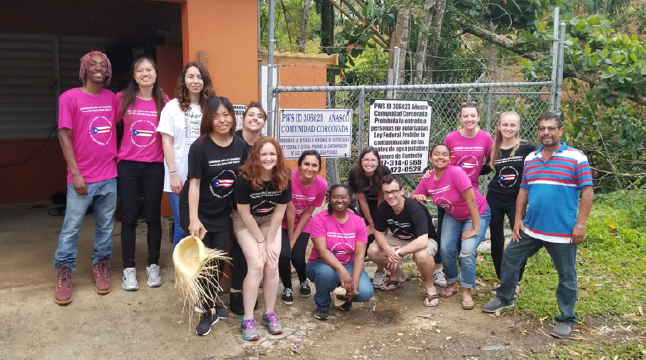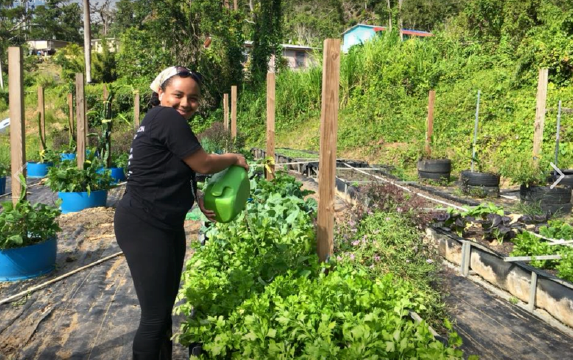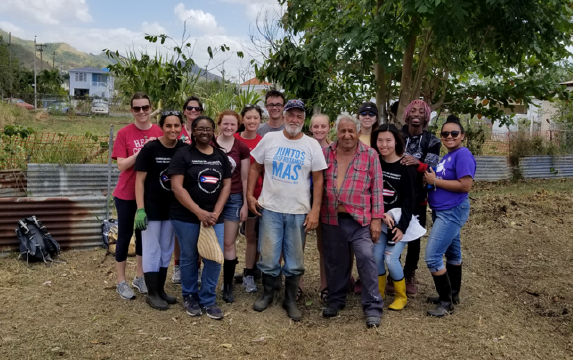
Learning and Volunteering in Puerto Rico
While many of her peers were celebrating Spring Break at the beach or another relaxing location, CEE/EPP student Ariana Sabbat was working to help the people of Puerto Rico recover from hurricane damage. Sabbat was selected for the Puerto Rico Spring Break Relief project due to her interest in climate change resilience planning, agriculture and energy sustainability, and service.Sabbat was surprised that nearly six months after Hurricane Maria hit, there were people in Puerto Rico without roofs, water, and, electricity. “The island is still experiencing the effects of the storm—in poverty and damage—and I wanted to help and learn from members of the different communities,” she says.
“Aspects of my schoolwork played a role in the work I did in Puerto Rico,” she says. She had the opportunity watch as drinking water was tested with Ph and turbidity meters—the same method she’d learned just weeks prior in an environmental engineering lab. “My EPP background was also a helpful in understanding the policy impediments to the island and the legislative improvements officials were trying to make.”
In Puerto Rico, Sabbat split her time between farming, community visits, and policy. “We worked in Utuado with an organic farmer who explained that Puerto Rico is dependent on imports because of restrictions placed on it by the U.S. government,” she says. The group of 13 students also met a farmer who’d lost his home in the hurricane and explained how he will implement more resilient agricultural practices for the upcoming hurricane season.
In Mayaguez, she worked on a project where community leaders collaborated with residents to transform an abandoned building into a large community garden. In many instances, Sabbat discovered that the hurricane’s damage led to new partnerships and the creation of community centers, water systems, and solar energy sources.
“On the Cano Martin Pena Community Land Trust tour, we learned about local communities rebuilding effort by creating programs and community centers for residents, as well as cleaning and dredging the local river. The trust wants to keep the land in the hands of the community to fight future gentrification due to falling property value,” she says.
Because of her interest in policy, Sabbat was excited to meet with University of Puerto Rico professors who talked about needed agricultural changes and sustainable energy improvements. Her group shared the work and research going on at CMU that could benefit the island’s residents. “We also met with the chairman of the Puerto Rican Energy Commission to understand the state of the island’s energy sources and efforts being made in micro-grid technology to prepare the island for the next hurricane season,” she says.
Sabbat noted that much of the island’s reconstruction was run by volunteers—without significant monetary support from the United States government. “In spite of that, the people were able to help each other to rebuild roofs, get children back in school, administer aid, and repair their communities.”
In the midst of such turmoil, the people of Puerto Rico wanted change and demonstrated strength. These messages were not lost on Sabbat. “This has shaped the way I look at my path as an engineer. I feel like for years I’ve been doing my work just to complete it and get a good grade. Now that I’ve seen the way my engineering can play a role in lives and communities, I understand what I’m working towards and I’m excited to get where I’m going, knowing what I know.”

